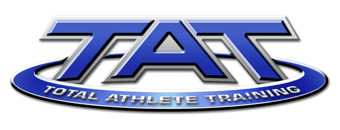The Role of Nutrition in Strength and Conditioning for High School Athletes
When it comes to strength and conditioning for high school athletes, nutrition plays a crucial role in optimizing performance, supporting recovery, and promoting overall health. Proper nutrition fuels the body, provides essential nutrients, and helps athletes reach their full potential. Here are the key aspects of nutrition that high school athletes should focus on for effective strength and conditioning:

1. Energy Balance: High school athletes need to maintain an appropriate energy balance to support their training and performance. Consuming an adequate number of calories is essential to meet the energy demands of intense workouts and physical activity. Athletes should work with a sports dietitian or nutritionist to determine their individual energy needs based on factors such as age, gender, body composition, and training volume.
2. Macronutrient Balance: High-quality macronutrients, including carbohydrates, proteins, and fats, are crucial for fueling workouts, promoting muscle growth and repair, and supporting overall performance. Carbohydrates are the primary source of energy for high-intensity exercise, while proteins provide the building blocks for muscle repair and growth. Healthy fats are essential for hormone production and overall health. A well-balanced diet that includes a variety of nutrient-dense foods is key.
3. Pre- and Post-Workout Nutrition: Fueling properly before and after workouts is essential for optimizing performance and enhancing recovery. Consuming a balanced meal or snack containing carbohydrates and proteins before exercise can provide the necessary energy and nutrients for the workout. Post-workout nutrition should focus on replenishing glycogen stores and promoting muscle repair and growth. Including a combination of carbohydrates and proteins within 30-60 minutes after exercise is recommended.
4. Hydration: Proper hydration is crucial for performance and overall health. Athletes should maintain hydration throughout the day and pay special attention to fluid intake before, during, and after training sessions. Water is typically sufficient for hydration, but for intense or prolonged exercise, sports drinks may be beneficial to replenish electrolytes and provide additional energy.
5. Micronutrient Intake: Adequate intake of vitamins and minerals is important for overall health and optimal athletic performance. Consuming a variety of fruits, vegetables, whole grains, lean proteins, and healthy fats can help ensure sufficient intake of micronutrients. High school athletes may benefit from consulting with a sports dietitian or nutritionist to identify specific micronutrient needs and address any deficiencies.
6. Consistency and Timing: Consistency in eating habits is crucial. Regularly spaced meals and snacks throughout the day ensure a steady supply of energy and nutrients. Athletes should avoid skipping meals or relying on unhealthy snacks. Additionally, timing meals and snacks around training sessions is important to optimize fuel availability and recovery.
7. Education and Support: High school athletes should be educated about proper nutrition and the impact it has on their performance. Coaches, parents, and educators play an essential role in providing information and support to help athletes make healthy choices. Working with a sports dietitian or nutritionist can provide personalized guidance and address specific needs and concerns.
Nutrition plays a vital role in strength and conditioning for high school athletes. By focusing on energy balance, macronutrient balance, pre- and post-workout nutrition, hydration, micronutrient intake, consistency and timing, and seeking education and support, athletes can optimize their performance, support their training, and maintain overall health. A well-planned and individualized nutrition strategy, along with proper training and conditioning, sets the foundation for success on and off the field.

